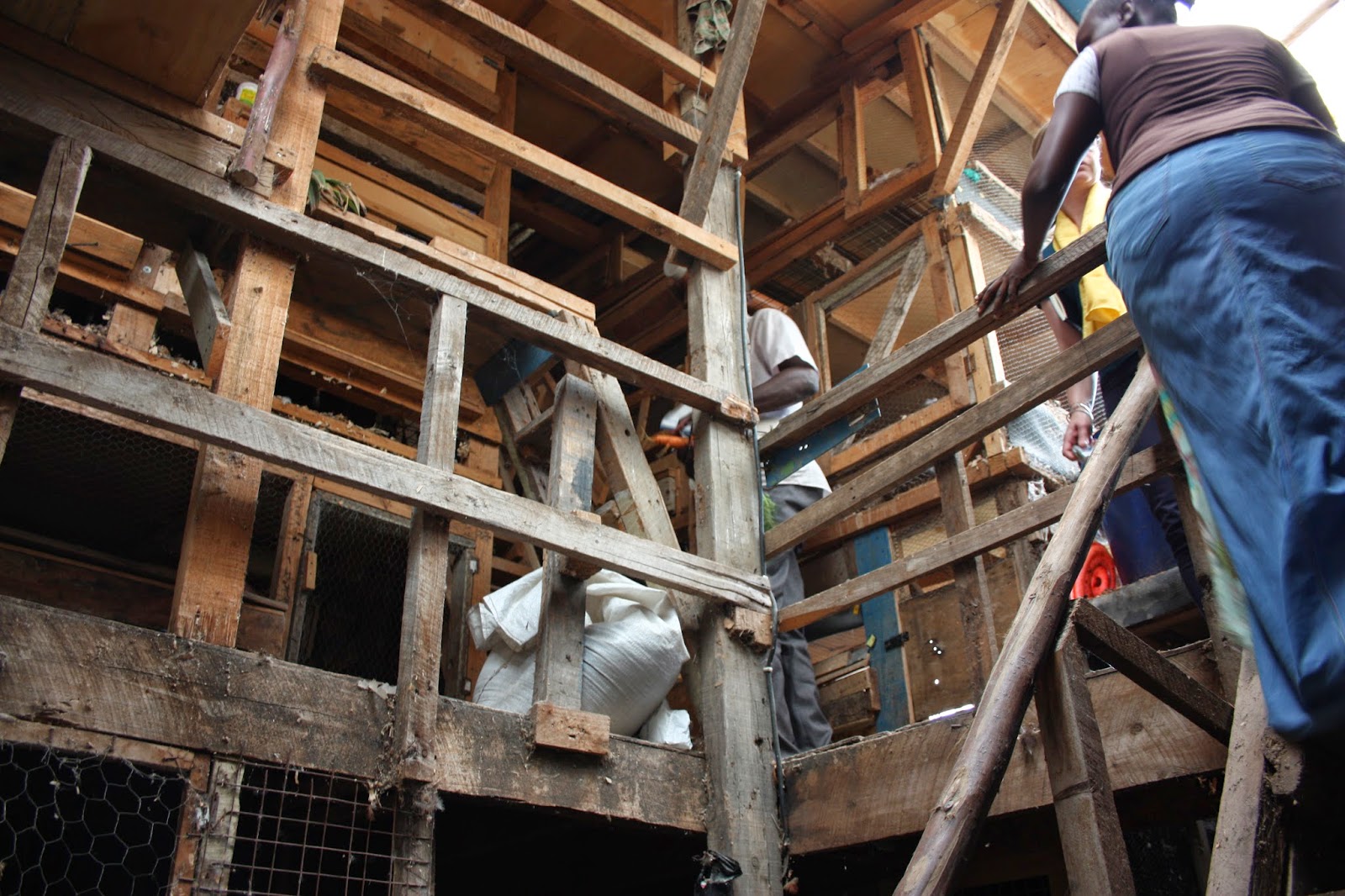Probably the most common refrain we heard from the women borrowers we met a couple Thursdays ago was something like: we produce these great things but we lack markets - can you help us find markets? In fact it's a very familiar refrain - it's the reason I was invited to Kenya for my Peace Corps assignment as well, more than 10 years ago.
 |
| These trucks are lined up ready to take things to markets of one kind or another. |
What I learned is that it's a lot more complicated than "there are no markets". There's all kinds of problems facing small producers - smallholder farmers, independent craftspeople, informal entrepreneurs - in making good profits from what they produce. There are most certainly markets, and lack of information about where markets exist is probably least of the problems. Lack of relationships with buyers and inability to produce at a high enough quantity and quality and reliability to meet the demands of large buyers who offer a consistent market rank higher in my estimation.
At the end of the day it's the same challenge small businesses face everywhere. But there's much to be learned from those who are able to find markets. Sarah Itambo of
Wisna Farms, for example, lamented that prices for her quail eggs had dropped precipitously, but continues to sell through the quail association she's a member of. Even at the lower price she still turns a decent profit on the eggs. No doubt teaming up with an association cuts into her profits further still, but she recognizes she can't do everything on her own. Getting help finding markets let's her concentrate on what she's best at - production of agricultural goods. So even if she gives up a big cut, it's probably a good deal in the long run to ensure a consistent market for her products. Because finding and connecting with markets here is more difficult and expensive - higher than normal transport costs, less than transparent information - middlemen take a bigger cut, and producers get frustrated. My hunch is many are too quick to go it alone. They underestimate the value of the service the brokers provide.
 |
| Sarah's chicken and quail operation. Just when you thought you'd seen it all there was another small flight of stairs and still more poultry to be found. |
 |
| The infamous quail and her eggs. Once worth a small fortune, today not so much. Sarah still produces and sells at a decent profit. |
Another problem is that marketing products and producing products are a different skill set- and personality- altogether. I've seen a lot of successful small scale business people and they all have a certain hustle. They go out and talk to lots of people, always sniffing out opportunities. I imagine a few of the women we met Thursday could be pretty uncomfortable approaching a cutthroat business person to try to strike a deal. They might not have the confidence to do such a thing. It might be that more than finding markets for small scale producers, it's about coaching them how to work with partners, or teaching the negotiation and presentation skills needed to strike deals at a larger scale than they would otherwise have confidence to pursue.
 |
| This women's group makes great stuff but needs help learning the markets for what they make. |
 |
| Didn't get the details but this operation seems to be getting regular orders for their handbags. Someone behind the operation has some handicraft market savvy. |
 |
| Cool bead gekko on the wall. |
#ibmcsc Kenya






No comments:
Post a Comment